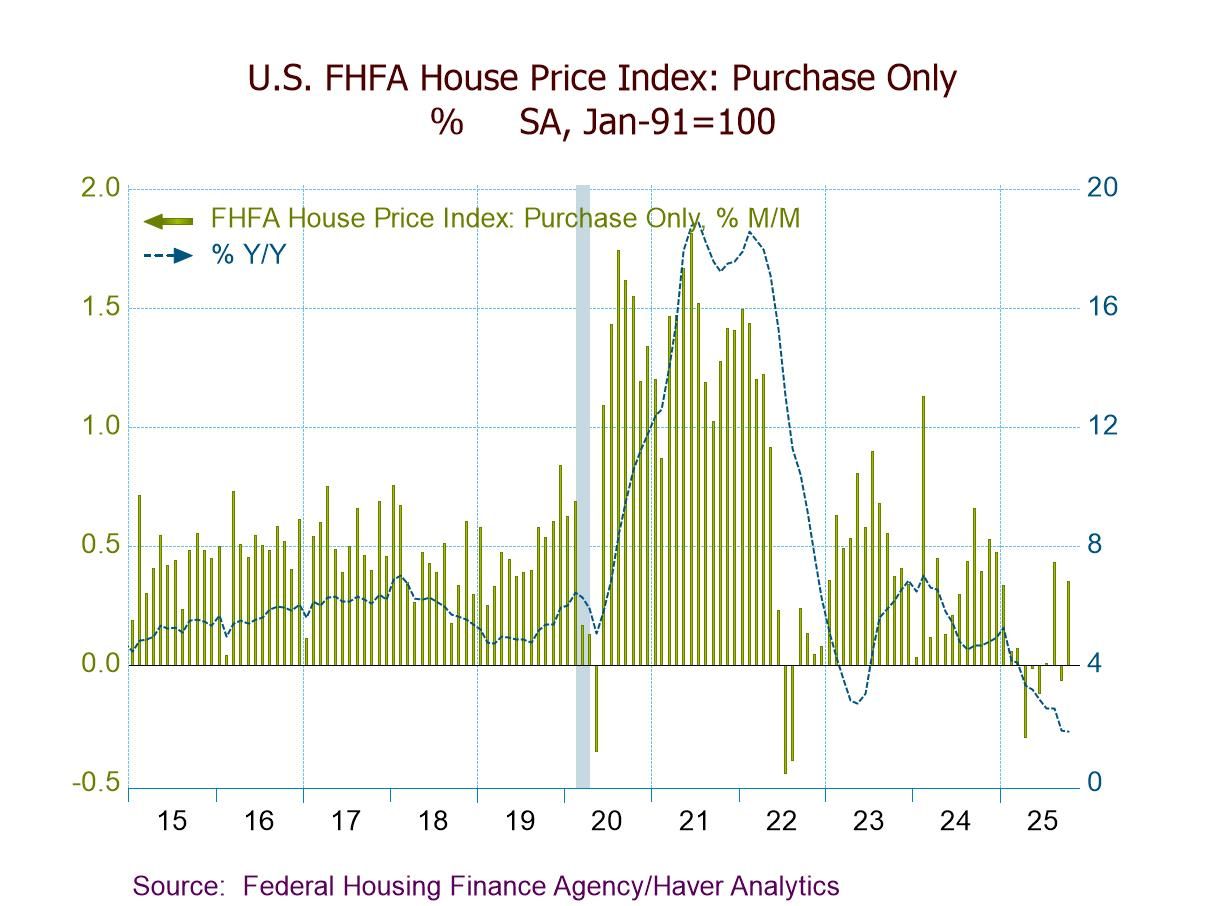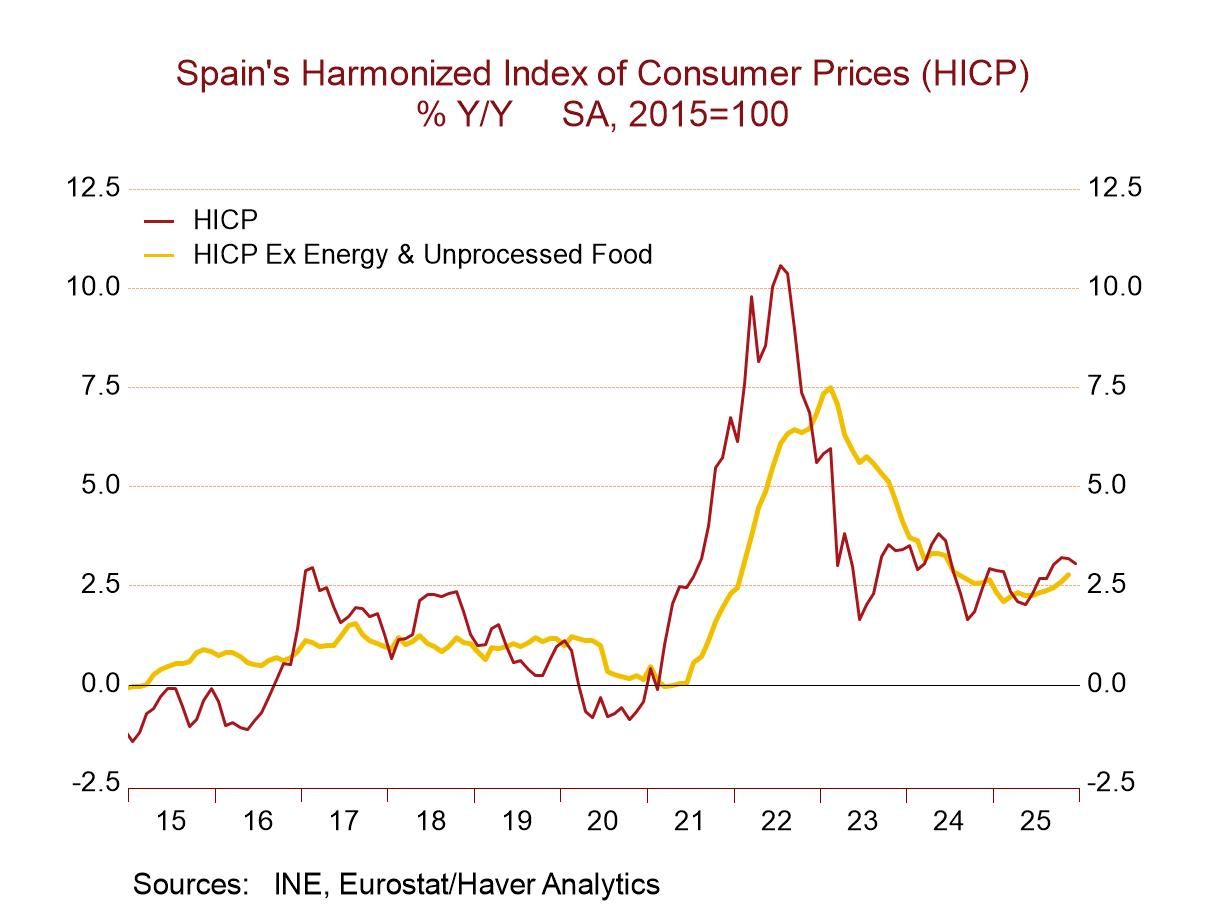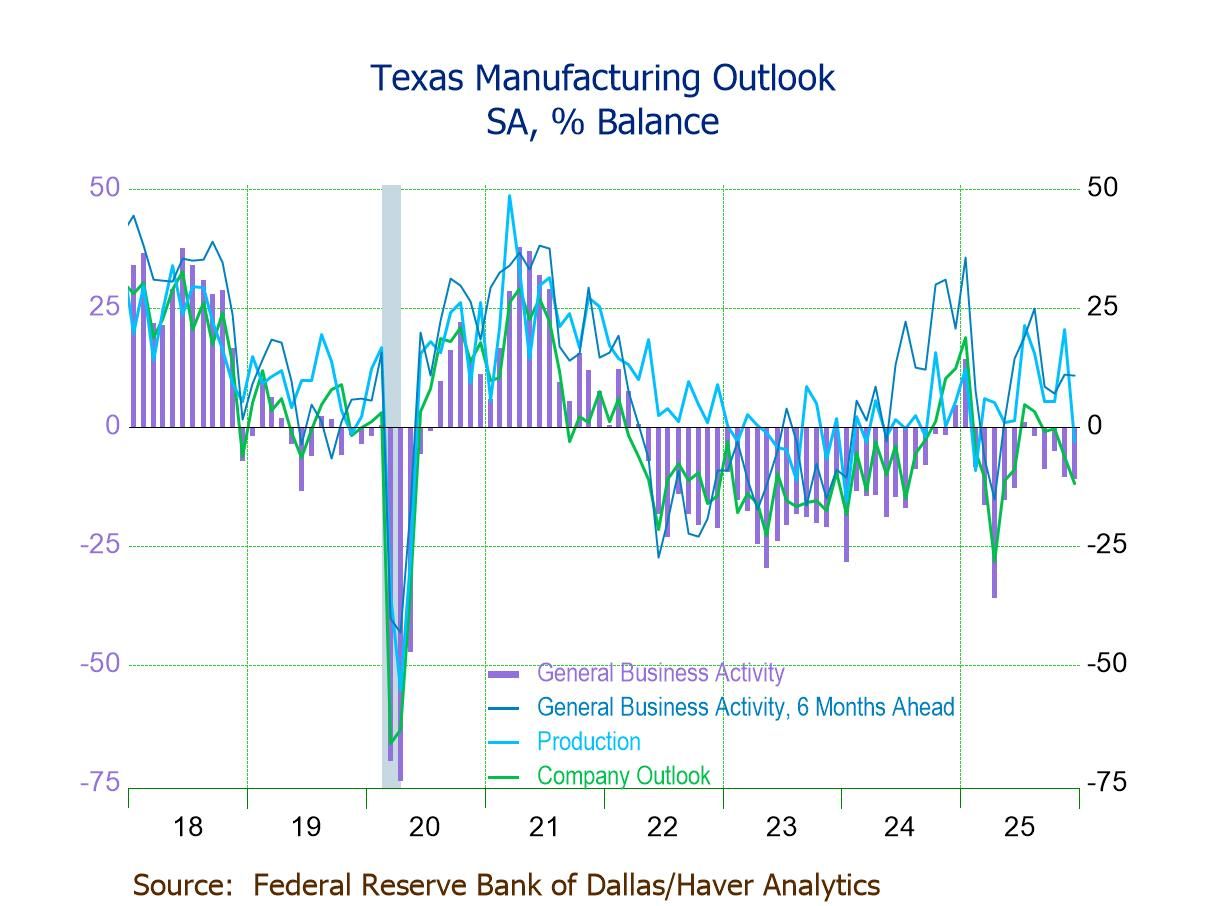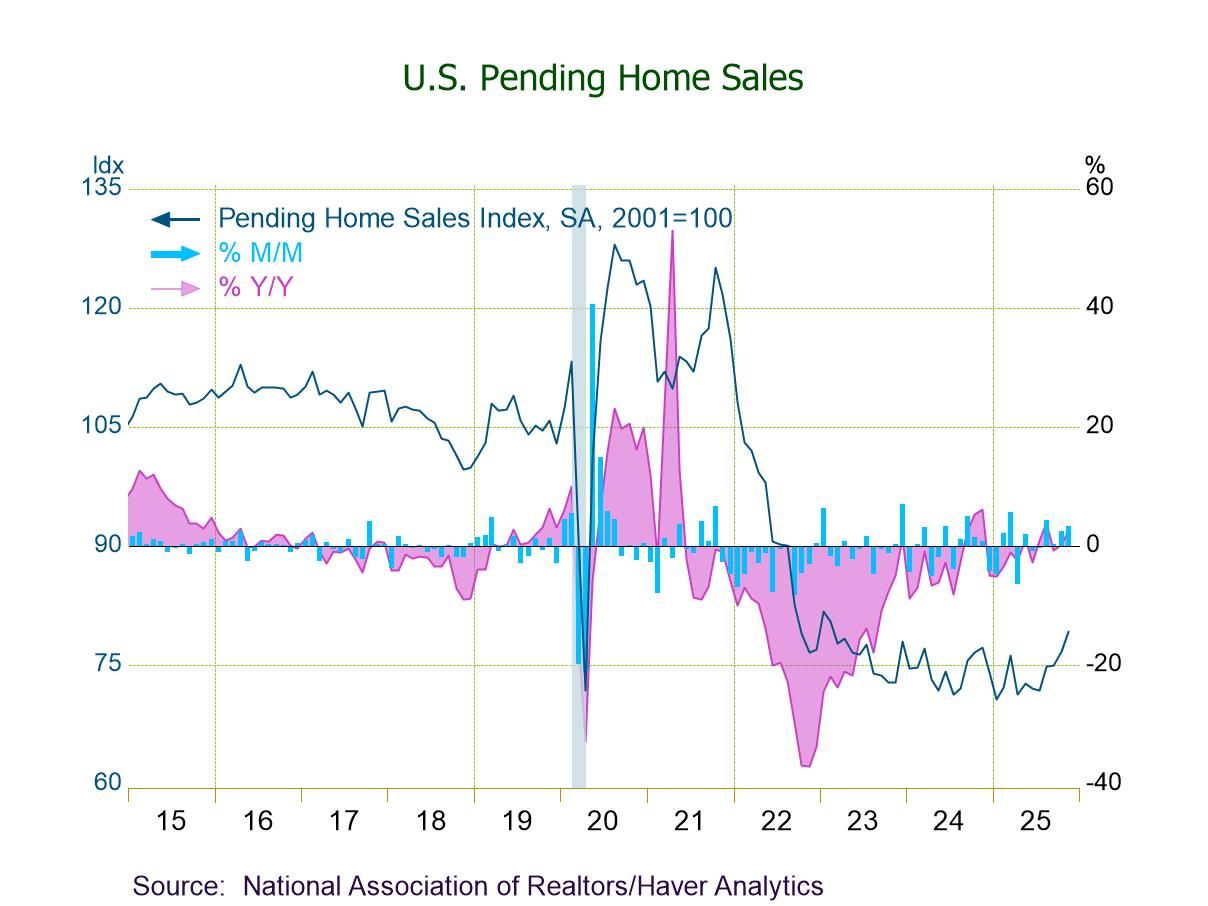 Global| Aug 30 2012
Global| Aug 30 2012EU Indices Show Spreading Weakness
Summary
While Merkel and Monti and Merkel and Draghi fight over the role of the new bailout facility the euro-Zone continues to slip. By now the whole of the e-zone is in a slide. The overall sentiment figures have slipped by roughly similar [...]
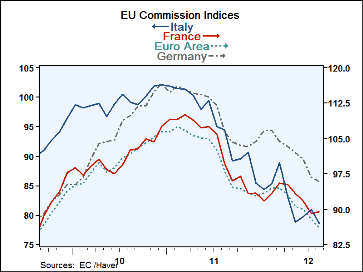 While Merkel and Monti and Merkel and Draghi fight over the role of the new bailout facility the euro-Zone continues to slip.
While Merkel and Monti and Merkel and Draghi fight over the role of the new bailout facility the euro-Zone continues to slip.
By now the whole of the e-zone is in a slide. The overall sentiment figures have slipped by roughly similar amounts since November 2007. Germany has dropped by 20.8 points, France by 22 Italy by 23.5. Falling by larger amounts are Greece (-30) and Portugal (-27). Falling by somewhat less are Spain -17.1 and the UK -16.1.
And some were weaker to start. As a result we find the various nations at different standings in their ranges and historic queues but the degree of recent slippage is roughly the same. Germany has the highest standing in its queue at the 34.8th percentile. That means the German sentiment index is weaker than this only 38% of the time. The next strongest reading is Belgium in its 18.6th percentile then Austria in its 17th percentile. The weakest are Italy followed by Portugal, Greece and Spain, all are below the bottom 10% of their respective queues- and are rarely weaker than they are in August.
We find the e-zone is battling over table scraps instead of confronting the real issues straight on. In formulating the fight over the ESM and whether it should have a banking license or not, the fight becomes one of how much financing will be able to be done at the discretion of the fund.
The real issue that the EMU leaders should be grappling with is weather they can save the Zone and how they would restore competitiveness among nations without a currency depreciation which would be a Zone-buster. Once it had a workable plan it would be able to work out financing requirements. But since there is no plan and no arrangement on how anyone who has lost major competitiveness could ever stay in the Zone, the argument over financing is simply between those who are struggling and those who do not want to shovel funds into a black hole.
Europe really needs A PLAN. Spain, Portugal, Ireland and Greece and even the Italy need a plan that will take them to a sustainable position in EMU. Without it, there can only be bickering. Greece has such a long way to go to restore its competitiveness- can it really get there? Samaras says Greece wants to stay in EMU but does it want to stay badly enough to pay the price? Is there a real plan apart from some set of deficit targets? Does anyone have any idea how much sacrifice it will take to keep these countries in EMU given the competiveness they have lost? Moreover that is quite apart from the financial help they may need in the meantime. Fixing lost competitiveness within a fixed currency zone is not an easy job.
The Zone’s problems are now bringing all members down. I can understand Merkel’s desire to limit German exposure to nations that are not making progress toward sustainability. But without a plan there is no way to tell if the extra monies you give someone is help toward a sustainable Zone or just more money thrown down a black hole where progress is not being made. Budget deficit targets are not useful in a recession and they will continue to be sequentially missed. It’s why the argument over the ESM is no more than petty bickering. Even if the ESM were the BIG BAZOOKA what is the point in firing it unless it has enough ammunition? And without a plan there would never be enough ammunition. Until competitiveness is restored the lagging countries will continue to be drains on the system.
| EU Sectors and Country level Overall Sentiment | |||||||||||
|---|---|---|---|---|---|---|---|---|---|---|---|
| EU | Aug 12 |
Jul 12 |
Jun 12 |
May 12 |
%ile | Rank | Max | Min | Range | Mean | By Q rank% |
| Overall Index | 87 | 89 | 90.4 | 90.4 | 40.8 | 224 | 117 | 67 | 50 | 100 | 11.5% |
| Industrial | -14.5 | -12.8 | -12.1 | -11.3 | 52.6 | 212 | 7 | -39 | 46 | -7 | 16.2% |
| Consumer Confid | -22.7 | -20.2 | -19.7 | -19.4 | 28.1 | 229 | 2 | -32 | 34 | -12 | 9.5% |
| Retail | -13.5 | -10.3 | -10 | -14.6 | 38.7 | 217 | 8 | -27 | 34 | -7 | 14.2% |
| Construction | -35 | -32 | -31 | -33 | 22.0 | 219 | 4 | -46 | 50 | -19 | 13.4% |
| Services | -11.4 | -10.4 | -7.3 | -6.2 | 31.5 | 162 | 34 | -32 | 66 | 8 | 15.2% |
| % M/M | Aug-12 | Based on Level | Level | ||||||||
| EMU | -2.0% | -2.2% | -0.7% | 86.1 | 34.8 | 225 | 118 | 69 | 49 | 99 | 11.1% |
| Germany | -1.0% | -3.7% | -1.4% | 95.8 | 52.7 | 165 | 117 | 73 | 44 | 99 | 34.8% |
| France | 0.4% | -2.8% | -1.7% | 89.5 | 34.9 | 211 | 117 | 75 | 43 | 100 | 16.6% |
| Italy | -3.0% | 1.6% | 1.1% | 78.6 | 12.9 | 241 | 121 | 72 | 48 | 99 | 4.7% |
| Spain | -5.6% | -1.6% | 1.1% | 82.8 | 24.3 | 231 | 116 | 72 | 43 | 100 | 8.7% |
| Greece | 1.2% | 2.7% | -2.5% | 77.0 | 11.3 | 235 | 119 | 72 | 48 | 99 | 7.1% |
| Portugal | 3.5% | -1.9% | 1.2% | 79.1 | 17.5 | 236 | 117 | 71 | 46 | 99 | 6.7% |
| Austria | -3.7% | -2.1% | -3.4% | 91.2 | 45.8 | 210 | 116 | 70 | 46 | 99 | 17.0% |
| Belgium | -1.3% | 1.9% | -1.5% | 91.0 | 45.0 | 206 | 116 | 71 | 45 | 99 | 18.6% |
| Finland | -1.8% | -2.1% | -2.4% | 90.7 | 35.4 | 215 | 120 | 75 | 45 | 101 | 15.0% |
| Netherlands | 0.7% | 0.7% | -0.3% | 87.6 | 41.3 | 215 | 116 | 67 | 49 | 100 | 15.0% |
| Memo:UK | -3.3% | 1.8% | 2.1% | 91.5 | 52.5 | 218 | 116 | 64 | 52 | 101 | 13.8% |
| All since June 1990 | 253-Count | Services: | 191-Count | ||||||||
| Sentiment is an index, sector readings are net balance diffusion measures | |||||||||||
Robert Brusca
AuthorMore in Author Profile »Robert A. Brusca is Chief Economist of Fact and Opinion Economics, a consulting firm he founded in Manhattan. He has been an economist on Wall Street for over 25 years. He has visited central banking and large institutional clients in over 30 countries in his career as an economist. Mr. Brusca was a Divisional Research Chief at the Federal Reserve Bank of NY (Chief of the International Financial markets Division), a Fed Watcher at Irving Trust and Chief Economist at Nikko Securities International. He is widely quoted and appears in various media. Mr. Brusca holds an MA and Ph.D. in economics from Michigan State University and a BA in Economics from the University of Michigan. His research pursues his strong interests in non aligned policy economics as well as international economics. FAO Economics’ research targets investors to assist them in making better investment decisions in stocks, bonds and in a variety of international assets. The company does not manage money and has no conflicts in giving economic advice.



